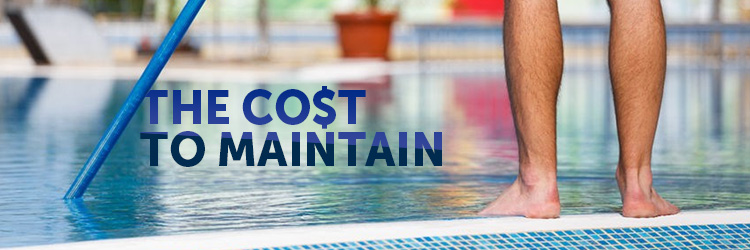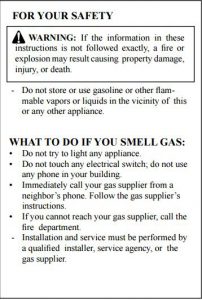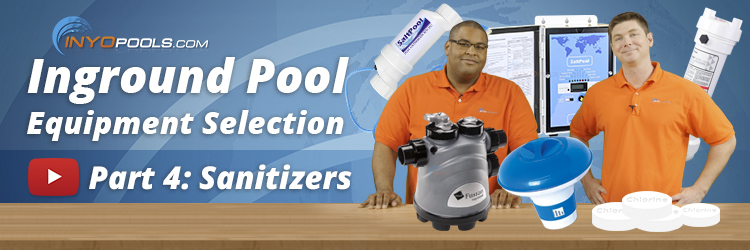One of the biggest benefits of any do-it-yourself (DIY) project is the amount of money you end up saving. Saving money is crucial around this time of year. But, how much money are you actually saving within your DIY pool projects? Is it really worth the time and effort to do it by yourself? Or, is hiring a pool technician money worth spent? In short, what does it cost to maintain your swimming pool?
It would be remiss of me not to mention that every pool is different, which makes every pool owner unique, as well. What you may deem as an easy task may not be for the next pool owner. It is our job not only to inform pool owners that, yes, this is something they can do, but also to provide the necessary content that shows you how.
The purpose of this blog post is to compare the cost-effectiveness of doing projects around your pool on your own versus hiring a pool technician to do it for you. Keep in mind, though, this is not a catch-all solution. Some chores are easy enough to do yourself while other jobs require a licensed professional. Let’s explore a little more.

What Can I Maintain Around The Pool?
Although we recommend doing most projects around the pool by yourself, there are areas and equipment that still require certified technicians. Large equipment like residential and commercial heaters, requires a licensed pool technician to handle the installation. You run the risk of losing your manufacturer’s warranty on certain products if you decide to install the unit by yourself. Everything else not mandated is free game.
Still, you may want to check the product’s literature prior to install. They include warning labels like the one pictured to the right. The label indicates that only a qualified installer or service agency should perform the install.
In the manufacturer’s eyes, maintaining equipment is different from installing a piece of equipment. Here is a list of areas many pool owners feel comfortable maintaining themselves.
- Replacing pump and motor
- Replacing pump parts
- Water chemistry/ balancing pool water
- Changing pool light parts (bulbs, gaskets, rings, etc.)
- Pool cleaning
- Opening/closing your pool
- Troubleshooting equipment (pump, filter, cleaner, heater, salt chlorine generator, automation)
- Painting
- Replacing parts on your filter (sand, cartridges, D.E. grids, O-rings, valves, etc.)
- Replacing liner
Comparing Costs
When it comes to DIY projects, pool owners compare the time and energy spent on doing a project by yourself versus the amount of money a pool serviceman would charge. I enlisted help from a few of our customer service reps who have experience working on pools around the Central Florida area. Of course, pool maintenance fees vary per city and market, but you should be able to get a ballpark figure on costs.
There are usually two different ways pool companies can charge homeowners for pool maintenance, a flat hourly rate or per job. Our customer service team has experience using both.

Hourly Rates
The majority of the large pool retailers that provide pool maintenance to homeowners charge flat hourly rates. A lot of pool owners prefer this method because it is harder for companies to overcharge and is a lot easier to remember. In Florida, the average hourly rate is around $100.00/ hour. Of course, this is only an average cost. There are plenty of smaller companies who charge less per hour. Always call around for best prices.
One of the major reasons pool companies use hourly rates versus a flat fee is because of the unexpected. For example, a pool owner called a pool company because she needed her multiport valve replaced. Immediately, they realized that they couldn’t replace her valve without replumbing her entire system. An hourly rate protects pool companies from underestimating the amount of work involved.
Now that we know the hourly rate, next we have to determine how long it takes to complete a job. Keep in mind, these are just the pricing for the actual install, not the equipment. Also, keep in mind that these are estimated time frames. Each installer has their own technique and style that can influence how long a job can take.
| Pool Maintenance Repairs & Installs | Time To Complete (In Hours) | Estimated Total Cost |
|---|---|---|
| Replacing a pool pump | 1 | $100.00 |
| Replacing a pool pump motor | 1 | $100.00 |
| Replacing a pool filter | 1 | $100.00 |
| Replacing D.E. grids/ D.E. breakdown | 1 | $100.00 |
| Installing a salt system | 1.5 | $150.00 |
| Installing a pool light | 2 | $200.00 |
| Replacing a liner | 8-12 | $800-1200 |
| Replacing/Installing new heater/heat pump | 1.5-2 | $150-200 |
| Troubleshooting a heater | 1 | $100 |
| Installing a safety cover | 3-6 | $300-600 |
Weekly & Monthly Fees
The majority of pool owners who hire pool technicians to take care of their pool do so on a weekly or monthly basis. If a pool technician is coming to your house on a weekly basis, more than likely you’re paying for a standard monthly pool cleaning. Screened-in pools are typically cheaper to maintain than pools that aren’t because they are better protected against bugs, dirt, and debris.
A standard pool cleaning typically includes:
- Skimming
- Vacuuming
- Brushing
- Cleaning and changing filter cartridges or media
- Water levels (leak detection)
- Maintaining proper chemicals (chlorine, pH, CYA, muriatic acid)
- Shocking the pool
- Opening and closing pool (depending on where you’re located)
Screened-in pools: $80 – $100/month
Unscreened pools: $100 – $125/month
Cost To Maintain Your Swimming Pool Nationally
In order to get an estimate on what pool owners spend on a national level on pool maintenance, we relied on HomeAdvisor.com. HomeAdvisor.com allows homeowners to find top-rated professionals to complete their home improvement projects or repairs. Afterward, the members complete a cost survey.
Based on 3529 cost profiles, below is a chart showing the average cost to maintain a swimming pool in the United States in 2016.
What Other Pool Owners Recommend
Looking at statistics and numbers are always great pieces of information to consider, but which do pool owner’s actually recommend most- hiring a pool company or maintaining the pool yourself? With help from our friends over at TroubleFreePools.com, we were able to dig a little deeper into what pool owners spend to maintain their pool and if they actually prefer doing it by themselves over hiring a pool company.
We asked ten pool owners a few questions about their pool maintenance and here are some of their best responses:
On average, how much do you spend a month on chemicals?
– $50.00 (40 k- gallons)
– $15.00 (15-25k -gallons)
-$148.00 (15-25k-gallons)
– During the summer, I spend just under $50.00 on chlorine and muriatic acid. (25.600k- gallons)
– Less than $10.00 a month on chemicals (acid cost= $4.75/gallon. We use a gallon every 6 to 8 weeks and also have a SWG. No other levels really change on a monthly basis. I also add CYA once or twice a year, but a 6-lb container lasts me more than a year and only costs $30.00 (16k- gallons)
– About $5.00 (averaged from a $60.00/year) I have a SWG and it does not include the cost of that. (less than 15k- gallons)
– Approximately $100-$150/ year. I love my SWG. Most of the cost is for the occasional purchase of liquid bleach and test (11,500k- gallons)
– Not including chlorine (I have a SWG), I spend maybe $10.00/month. 90% of these costs is CYA due to depletion of overflow from rain. My pH is very stable so additions of muriatic acid are only twice a year if that. (15k- gallons)

Based on your experience, would you recommend maintaining a pool yourself or simply hiring a pool service company?
– If one has the physical strength to brush/vacuum the pool, I’d recommend maintaining yourself. That part is the most demanding element of pool care. It can be quite relaxing when done slowly. There are wonderful robots available now to really cut down on the owner’s efforts…for a price. Testing your water takes three minutes and chemical additions aren’t too difficult.
– I would recommend that a person to maintain a pool themselves, but only if they are willing to test the water regularly and spend just a little time learning how different water parameters interact with each other. Understanding their relationship is key to easy pool care. If a person is just lazy or just doesn’t want to put in an hour a week in their pool and expects a pool to be cleaned and balances all by itself, then I would recommend that person hire someone to manage their pool for them.
– It’s way too easy and too fun not to do it myself. Why would I ever let somebody else do it?
– I suggest maintaining it yourself. I would do it completely except that we travel often and therefore need someone to clean/monitor the pool when we are gone.
– It depends on who I would be making the recommendation to. I’m at home most days so I can afford to be around the pool; others are not so fortunate. I would recommend that people try to maintain their pool themselves at first but, if they can’t do it and keep the pool clean and safe to swim in, then I would not have a problem recommending they use a pool service with the caveat that it will definitely cost them more in the long run.
– Do it yourself! It is cheaper and you KNOW the water is safe every minute of the day. Services shoot the FC high in hopes it will last until the next time they come, which is usually in a week.
The Work or The Money
At the end of the day, pool owners can save a pretty penny through DIY projects. Not only can it save you money, but it also gives you the opportunity to get comfortable operating your pool. Still, I won’t stress the fact that if you decide to take on a project yourself, make sure you take it on fully. Many projects around the pool require consistency. For example, if you decide to maintain and balance your pool water yourself, be prepared to test your pool three to five times a week. DIY projects definitely save you money but it also digs into your own time a little. It’s wise to compare the time-cost efficiency to determine if taking on a job yourself is truly worth your time.












I’ve worked in the pool industry for over a decade, and I have a hard time comprehending the breakdown of your costs, and not very specific on the type of sanitizer utilized (chlorine tablets or salt) in your report. Also, what is SWG? and a Muriatic acid gallon is used twice a year or every 6 to 8 weeks? I have more questions than answers…
I have a hard time believing you worked in the pool industry for over a decade if you don’t know what a SWG is. That is a Salt Water (chlorine) Generator. If liquid chlorine is used, pH will drift upwards. If tabs are used, it will remain stable and possibly go lower of there is a lack of alkalinity.
I don’t think I spend anywhere near those costs I do all of my own maintenance and chemicals With a salt generator the up front is high but the monthly is low I also try to get things cheaper (pumps hoses ect from eBay)
But do buy all my specialty parts from Inyopools hard to find parts and good service
Thanks guys
Wes Carl
Wes,
Thanks for reading and responding to our blog post. We’re definitely glad that you do not spend as much money on your pool maintenance. Please let us know if you need help locating any parts in the future.